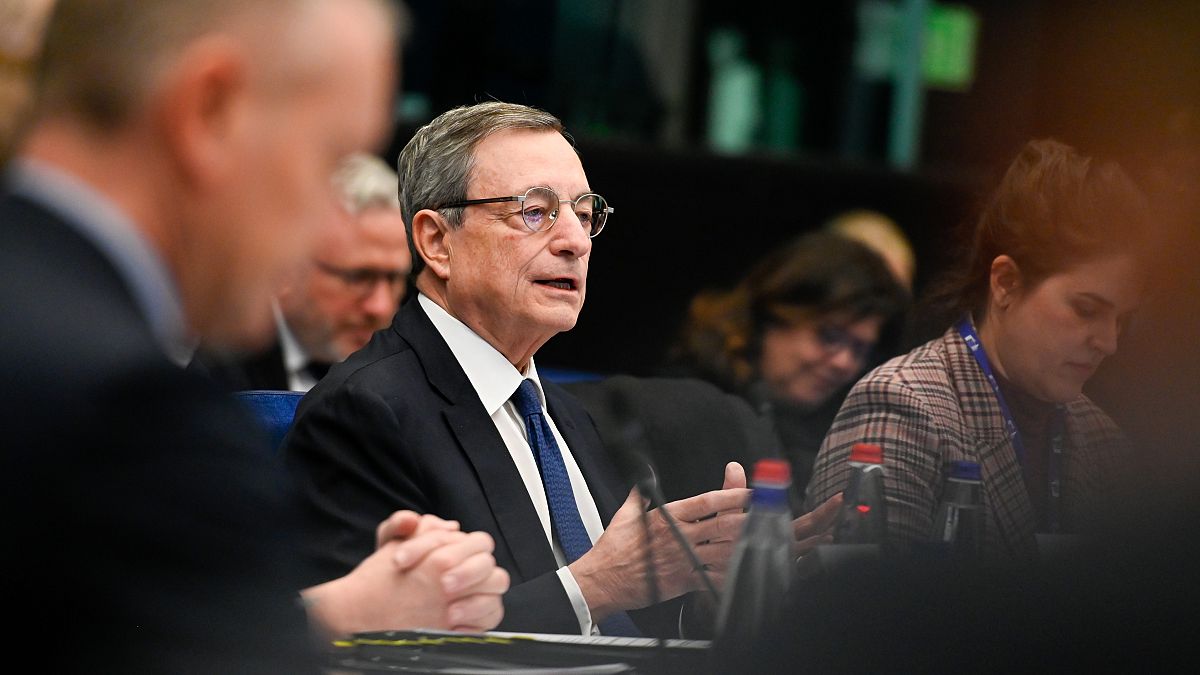The former Italian prime minister proposes “radical change” as the bloc faces aggressive competition from China and the US. Draghi touts use of controversial eurobonds; proposed plan for decarbonisation and competitiveness could entail defensive trade measures, he says.
Ex-Italian Premier Mario Draghi has called for common EU borrowing and an end to national vetoes in a landmark report on economic competitiveness presented to the EU executive on Monday.
The long-awaited report, originally due in June, proposes a “new industrial strategy for Europe”, saying that the era of open, rules-based trade is on its way out.
His findings, drafted with the aid of European Commission officials, come just days before its President Ursula von der Leyen is due to set out the duties of top lieutenants for her next five-year mandate.
“The EU should move towards regular issuance of common safe assets to enable joint investment projects among member states and to help integrate capital markets,” the report said – a step towards the controversial idea of eurobonds, in which member states issue collective debt.
The EU already moved in that direction with Next Generation EU, a several-hundred-billion-euro investment plan that came in the wake of COVID-19 – but the idea has raised fears of subsidising weaker member states, among “frugal” member states such as von der Leyen’s Germany.
In April, Draghi promised “radical change” amid growing concern over a massive productivity gap with the US, where incomes have grown twice as much as the EU’s since 2000, Draghi said.
He’s proposing more aggressive measures in response to the massive green tech subsidies offered in China and the US.
“A joint plan for decarbonisation and competitiveness could entail, in specific circumstances, defensive trade measures to level the playing field globally and offset state-sponsored competition abroad,” the report said.
“The era of open global trade governed by multilateral institutions looks to be passing,” he added, pledging to coordinate the screening of foreign direct investment, given fears that China is hoovering up expertise vital to European innovation and security.
Draghi has some tough messages for the European Commission, which he says needs to exercise more “self-restraint” in regulating.
“The Commission’s legislative activity has been growing excessively,” he said, saying that over half of small- and medium-sized companies complained of paperwork and regulatory obstacles.
The Italian, who while head of the European Central Bank pledged to do “whatever it takes” to save the euro, also proposed to clip the wings of its Council, the body representing member states which has often blocked EU reforms.
Existing treaty measures “should be leveraged to generalise voting by qualified majority in all policy areas in the Council”, moving away from a system that lets individual governments veto economic or foreign policy plans, the report said.
Recent months have seen Hungary block a €50bn support package for Ukraine, and Estonia put the brakes on reforms to value-added tax.
Von der Leyen has pledged to make boosting growth a priority for her next five years at the helm of the EU executive, after a first term that majored on tackling climate change, coping with COVID-19 and responding to the war in Ukraine.

